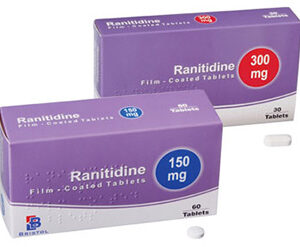Bentyl is a medication that is commonly prescribed to treat irritable bowel syndrome (IBS) and other gastrointestinal conditions. It belongs to a class of drugs known as anticholinergics, which work by blocking certain receptors in the body.
This drug helps to relieve the symptoms of IBS, such as abdominal pain, cramping, and discomfort. It does this by relaxing the muscles in the intestines and slowing down the movement of the bowel.
Warnings
Before taking Bentyl, it is important to be aware of certain contraindications to its use. This medication should not be taken if you have a known allergy or hypersensitivity to Bentyl or any of its ingredients. Additionally, it should be used with caution in individuals with certain medical conditions:
- Glaucoma: Bentyl can increase the pressure in the eyes, which can worsen the symptoms of glaucoma. It should not be used by individuals with narrow-angle glaucoma.
- Urinary retention: This medication can cause urinary retention, especially in individuals with a history of urinary issues. It should be used with caution in such cases.
- Obstructive diseases: Bentyl may worsen symptoms in individuals with obstructive diseases like pyloric stenosis or bladder neck obstruction.
- Gastrointestinal obstruction: It should not be used in individuals with a blockage in the digestive tract.
Managing Side Effects
Like any medication, Bentyl can cause side effects in some individuals. These side effects are usually mild and go away on their own, but if they persist or worsen, you should consult your healthcare provider. Some common side effects of Bentyl include:
- Dry mouth
- Blurred vision
- Dizziness
- Confusion
- Difficulty urinating
- Constipation
If you experience any of these side effects and they become bothersome, your healthcare provider may recommend ways to manage them. For example, drinking water frequently can help alleviate dry mouth, and using lubricating eye drops can relieve blurred vision.
Administration
To ensure the safe and effective use of Bentyl, it is important to follow the recommended guidelines for administration. This medication is typically taken by mouth, usually 2 to 4 times a day, with or without food. The exact dosage and frequency of administration will depend on the individual’s condition and their response to the medication.
If you miss a dose of Bentyl, take it as soon as you remember. However, if it is close to the time for your next dose, skip the missed dose and continue with your regular dosing schedule. Do not take a double dose to make up for a missed one.
In cases of overdose, where the recommended dosage has been exceeded, it is important to seek medical attention immediately. Symptoms of overdose may include severe dizziness, confusion, hallucinations, difficulty breathing, and seizures.
Bentyl Compatibility
When taking Bentyl, it is important to be aware of potential interactions with other medications. This medication may interact with certain drugs, which can affect their effectiveness or increase the risk of side effects. It is important to inform your healthcare provider about all the medications you are currently taking, including prescription drugs, over-the-counter medications, and herbal supplements.
Some drugs that may interact with Bentyl include:
| Drug | Interaction |
|---|---|
| Antidepressants | May increase the risk of side effects such as drowsiness and blurred vision. |
| Antihistamines | May enhance the anticholinergic effects of Bentyl, leading to increased side effects. |
| Antipsychotics | May increase the risk of anticholinergic effects such as urinary retention. |
Questions Answered
-
Q: Can Bentyl be used during pregnancy?
A: Pregnant individuals should consult their healthcare provider before taking Bentyl. It is important to weigh the potential benefits against the risks before using this medication during pregnancy. -
Q: Can Bentyl be used by breastfeeding mothers?
A: Bentyl may pass into breast milk, so it is important to consult a healthcare provider before breastfeeding while taking this medication. They can provide guidance on whether to continue breastfeeding or temporarily discontinue it. -
Q: Can Bentyl be taken with food?
A: Bentyl can be taken with or without food. However, if you experience stomach upset, you may take it with food to help alleviate this side effect. -
Q: How long does it take for Bentyl to start working?
A: The onset of action of Bentyl can vary from person to person. Some individuals may experience relief of symptoms within hours, while others may require a few days of continuous use before noticing an improvement. -
Q: Can Bentyl be used in children?
A: Bentyl is not typically recommended for use in children. However, in certain cases, a healthcare provider may prescribe it off-label if they deem it necessary. The dosage and administration guidelines may differ for pediatric patients, so it is important to follow the healthcare provider’s instructions.

Reviews
There are no reviews yet.